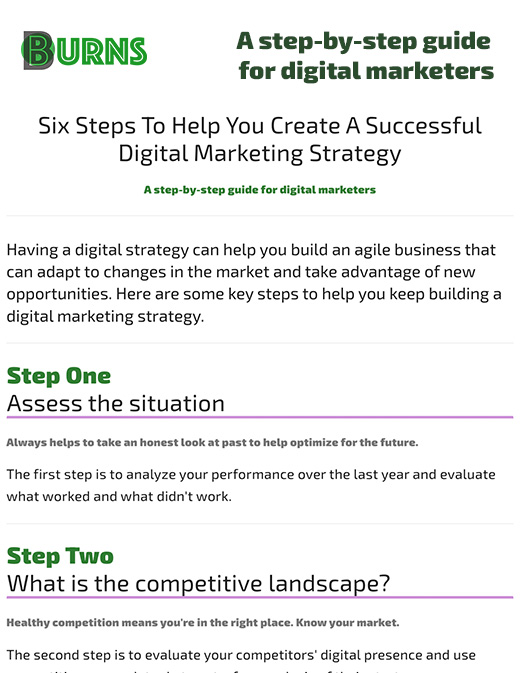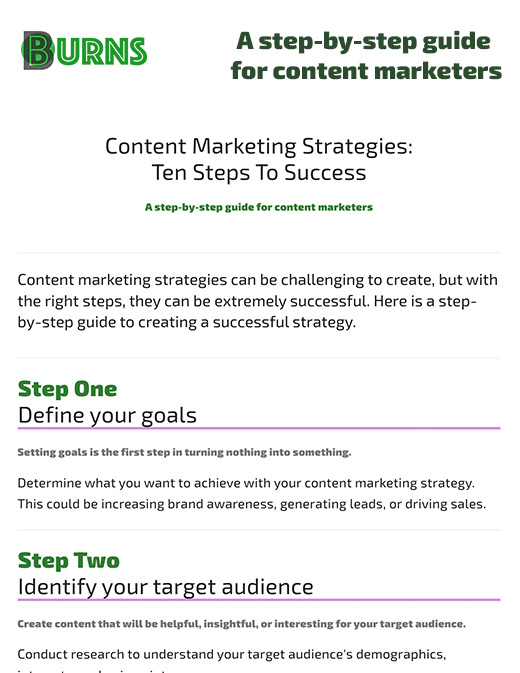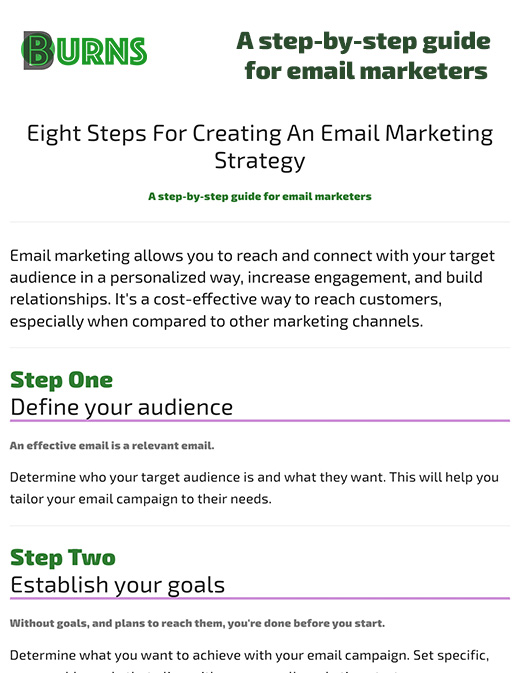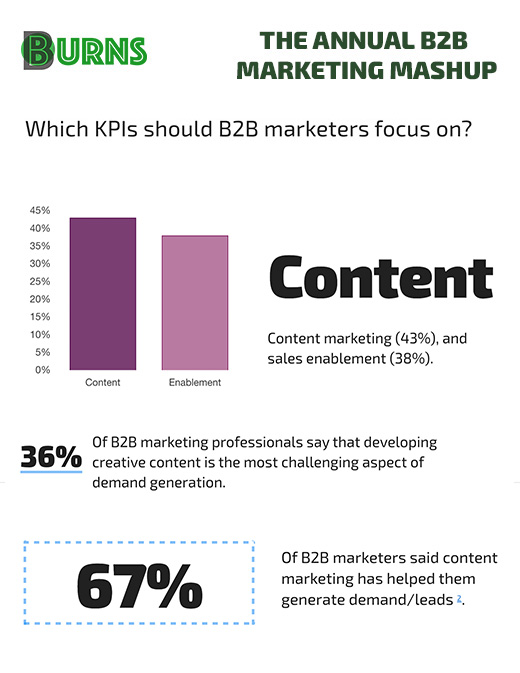Real-world successes using AI in B2B marketing
Josh BurnsDate: October 1, 2023 | Time: 3 min to read
One successful use of AI in B2B marketing is the implementation of machine learning algorithms and behavioral modeling to generate leads
We see some real-world stories of B2B marketers unlocking growth through AI. SAP used AI to optimize its LinkedIn ad targeting, resulting in a 20% increase in click-through rates and a 50% decrease in cost per click. IBM used AI to analyze its sales data and identify which leads were most likely to convert. This resulted in a 10% increase in sales productivity. Demandbase used AI to personalize its website content for each visitor, resulting in a 33% increase in engagement and a 50% increase in conversion rates. With hyper-personalization and customer experience optimization, AI is revolutionizing the business world
How has AI impacted the way B2B companies approach customer engagement?
AI has had a significant impact on the way B2B companies approach customer engagement. Here are some ways AI has transformed B2B customer engagement:
- Personalization: AI technology enables businesses to provide personalized experiences tailored to the unique needs of each customer. By analyzing customer data, AI can help businesses understand their customers' preferences and behaviors, allowing them to provide more relevant and targeted content.
- Enhanced lead generation and scoring: AI has revolutionized lead generation and scoring by providing hyper-personalization and optimizing customer experiences. With AI, businesses can identify which leads are most likely to convert, allowing them to focus their efforts on the most promising prospects.
- Improved customer support: AI-powered chatbots can provide 24/7 customer support, answering common questions and resolving issues quickly and efficiently. This can improve customer satisfaction and reduce the workload on customer support teams.
- Increased efficiency: AI-enabled cold calls can drive better sales outcomes and improve sales processes. By automating repetitive tasks, AI can free up sales teams to focus on more strategic activities.
- Better customer insights: AI can help businesses gain a deeper understanding of their customers by analyzing large amounts of data. Businesses can use this information to improve their marketing campaigns and customer engagement strategies by identifying patterns and trends.
AI has transformed B2B customer engagement by enabling businesses to provide personalized experiences, generate more qualified leads, and improve customer service.
What are some challenges that B2B companies face when implementing AI in customer engagement?
Implementing AI in customer engagement can be challenging for B2B companies. One of the biggest challenges B2B marketers face with AI implementation is data quality and quantity. AI algorithms require large amounts of data to be effective, and the data must be accurate and complete.
Another challenge is AI relies on customer data to provide personalized experiences, which can raise privacy concerns. B2B companies must ensure that they are collecting and using customer data in a responsible and ethical manner.
What about cost? Implementing AI can be expensive, especially for smaller B2B companies with limited budgets. The cost of acquiring and maintaining AI technology can be a barrier to entry for some businesses.
B2B companies can overcome these challenges by investing in the right technology, hiring skilled professionals, and providing training and support to their employees. Consequently, they can improve customer engagement through AI, including improved personalization, lead generation, and customer service.
Measure the success of your AI-driven customer engagement efforts?
A combination of these metrics can be used by B2B companies to measure the success of their AI-driven customer engagement efforts. By doing so, we can understand the impact of AI on our business operations and make data-driven decisions to improve customer engagement strategies.
Some great resources:
- LinkedIn - Jane Deehan Four real-world stories of B2B marketers unlocking growth through AI
- Marin - The Impact of Artificial Intelligence on B2B Sales and Marketing
- PhaseWare - How AI Is Transforming B2B Customer Support
Resources



